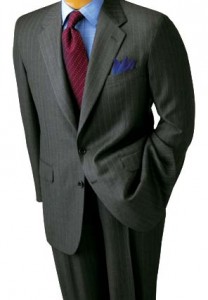There is an old fashion idea that one “should dress for the position that you want.” If you want to be a bank executive, you should wear a suit and tie even if your current role does not require it. Not sure this reference is totally relevant today except as a metaphor, but that’s for another conversation.
The phrase came to mind as I was thinking about how some leaders have an “equity mindset,” an “ownership mindset” and some simply think like a hired hand, no matter how much they may think that they want to own equity. To truly have an equity mindset, one usually has understand how to “sacrifice now for gain later” as Charlie Munger would say. It means making sure that others (customers, employees, other shareholders) are taken care of first, and some days there will be something left over and some days there won’t be.
Equity Mindset
In my experience, people usually have to start thinking like an owner, or thinking with an equity mindset, before they really are in a position to gain true equity — either by starting something themselves or by earning it in their current organization. An attitude of “I eat first” does not usually inspire others to share equity with you. If you are to be their partner, they want to see the sacrifice and responsibility to put others first and to share for the benefit of the greater organization. This is usually vital to the long-term health of any organization, and therefore the long-term health of the organization’s equity. As George Gilder has written: capitalism gives first and then receives.
An equity mindset conveys another subtle and important signal to others: confidence. Confident people demonstrate the willingness to sacrifice now, and bet on their own ability for gains later. This confidence is attractive. Knowing that we will win together or lose together is attractive. The opposite would be: I will win first and then maybe share. Many examples of the opposite which are not attractive can be seen in the daily press.
Ownership Equity Definitions
Ownership is often an over-used term so it may mean different things to different people. Some people may see an attitude of “this is mine” like a 2-year old, or a lack of consideration of others. To me, ownership means being ultimately responsible for the long-term health of an endeavor and for all of the constituents of that endeavor.


 I am an investor at Greybull Stewardship, an
I am an investor at Greybull Stewardship, an 
 Sign Up
Sign Up RSS Feed
RSS Feed